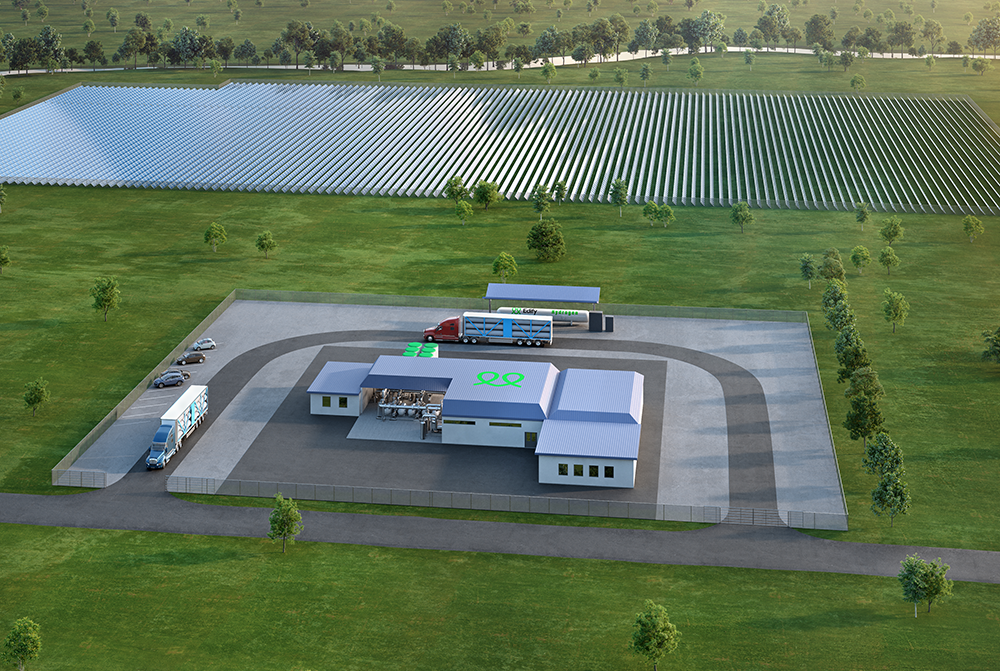Edify Energy will spearhead the development of the Townsville Region Hydrogen Hub after being named as the recipient of $70 million (USD 46.3 million) in funding allocated by the Australian government to support projects that accelerate the delivery of a green hydrogen industry in north Queensland.
Construction of the Townsville green hydrogen hub, which will co-locate producers and users of hydrogen, is due to start next year and be complete in 2026, with commercial operations scheduled to start in 2027.
Edify and its partners will deliver a 17.6 MW demonstration production facility with integrated renewable energy generation and battery storage.
The initial stage of the hub will support the production of 800 tonnes of green hydrogen per year, before ramping up to about 3,000 tonnes per annum for domestic supply with a view to scaling up production to 150,000 tonnes per year for export.
Sydney-based Edify has already been granted development approval to build and operate a green hydrogen production plant of up to 1 GW, as well as a behind-the-meter solar and battery storage facility within the Lansdown Eco-Industrial Precinct, about 50 kilometres south of Townsville.
Australian Energy Minister Chris Bowen said renewable hydrogen shapes as a “game changer” for the country’s economy, opening the door to green metals, green fertiliser, green power and supporting industrial decarbonisation.
Bowen said the Townsville region is perfectly positioned to take advantage of the growing global demand with its infrastructure, workforce capacity, and proximity to Asian trading partners making it an ideal location for a green hydrogen hub.
“With its port, expertise in exports and access to Queensland’s abundant solar resources, Townsville is ideally placed to help power the world with Australian renewable energy and create jobs in regional Australia,” he said.
The Townsville hydrogen hub has attracted more than $137 million of combined investment, including $20.7 million from the Australian Renewable Energy Agency (ARENA). Funding is also being sourced from industry and the German government.
The Australian government’s contribution is part of more $500 million in Commonwealth funding for hydrogen hubs in regional centres including Gladstone, Bell Bay, Kwinana, the Pilbara, Port Bonython and the Hunter.
Australian Prime Minister Anthony Albanese said the investment will help unlock the benefits of an industry which could inject an additional $50 billion into the Australian economy by 2050.
Albanese said the global shift to clean energy and decarbonised economies presents a huge economic opportunity but warned the competition to secure a share of the market is hotting up.
“We need to recognise that globally there is competition, there’s a race on for who can position themselves to take advantage of the shift that is occurring globally,” he said, adding that he is “determined to grasp this opportunity.”
The Townsville announcement was welcomed by Zero Carbon Hydrogen Australia General Manager Joanna Kay who said it solidifies a promising beginning for Australia’s hydrogen industry in 2024.
“Hydrogen hubs hold the potential to boost local economies, creating jobs and reducing carbon emissions in industries still tethered to fossil fuel energy,” she said.
“However, it’s crucial to note that … to truly thrive, hydrogen hubs must actively build community support, emphasising the broader benefits they bring to the table.”
The federal government has estimated that the Townsville hydrogen hub will create 200 direct jobs, as well as 300 ongoing jobs.
This content is protected by copyright and may not be reused. If you want to cooperate with us and would like to reuse some of our content, please contact: editors@pv-magazine.com.









2 comments
By submitting this form you agree to pv magazine using your data for the purposes of publishing your comment.
Your personal data will only be disclosed or otherwise transmitted to third parties for the purposes of spam filtering or if this is necessary for technical maintenance of the website. Any other transfer to third parties will not take place unless this is justified on the basis of applicable data protection regulations or if pv magazine is legally obliged to do so.
You may revoke this consent at any time with effect for the future, in which case your personal data will be deleted immediately. Otherwise, your data will be deleted if pv magazine has processed your request or the purpose of data storage is fulfilled.
Further information on data privacy can be found in our Data Protection Policy.